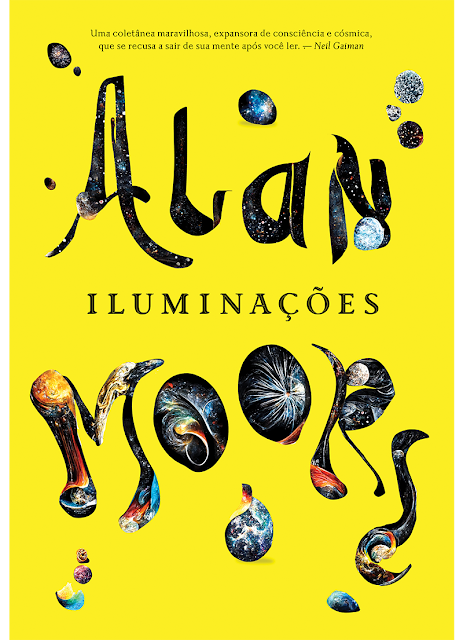Sometimes things resurface, especially if we are talking about the World Wide Web.
The Moore interview starts
around minute 2:53 and ends at 6:20. Below, a transcription. Enjoy!
[...]
did you and Dave Gibbons have any idea the impact that the Watchmen was going to have?
ALAN MOORE: After three issues in, yes... not to start with... Originally we planned to do just a very clever, exciting superhero book with a few neat twists. Around about the third issue something strange started to happen in the mix, you know... We started to notice that there were interesting layers of storytelling going on between what was happening in the captions, what was happening in the pictures, the dialogues, the little strip about the pirates that was embedded in the overall strip... there was a peculiar kind of interaction going on that I'd never actually seen in comics before. When we realized we were doing it we decided that that was what the comic was about.
With all the hoopla and excitement, enthusiasm that went down with that when you look back is it something you're still proud of ? Does it still hold up for you?Watchmen still holds up for me... I still think Watchmen was a great work. It's not without any flaw, no work is... The hoopla surrounded it has rather blunted some of its appeal for me...to me I'm often reminded of something that David Bowie said when he described himself as the face that had launched a thousand pretensions, you know, and there's some truth about that regarding Watchmen... Watchmen did seem to open the doors for a lot of people who... that grasp the surface of Watchmen, they grasp it got a grittier violence, a more adult approach to sexuality... they probably couldn't grasp exactly how to do some of the clever semiotic stuff that we were doing but they got the sex, the violence, the pretension, the references to popular song lyrics, things like that which all made it very 80s and very modern... and I've seen a lot of retreats of that kind of comic sensibility sense that to me have seemed depressing, pretentious and yet I have to own up to a certain paternity there, you know... the child is ugly but it's probably mine, you know... and that has tended to blunt it a bit...
I wouldn't like to say that Watchmen had a good effect upon comics. I think it was a good comic book but I wouldn't like to say that it had necessarily a good effect upon comics. It might just be doomed us to 10 years of heavy-handed retention...
Looking back on Watchmen, is there anything you wish you'd done differently?
No, I think that I'm pretty happy with it as it was. I could have done differently, you know... it was perhaps... not all of it was the book that people wanted to read but all of it was the book that I wanted to
write.
What I was trying to do in Watchmen was to use a lot of comic book icons in the plot, in the characters but to do something different with them... I think it was perfectly successful at what it did, you know... Yeah I'm happy with it... I'll stand by Watchmen. [...]
You can watch the video
HERE













